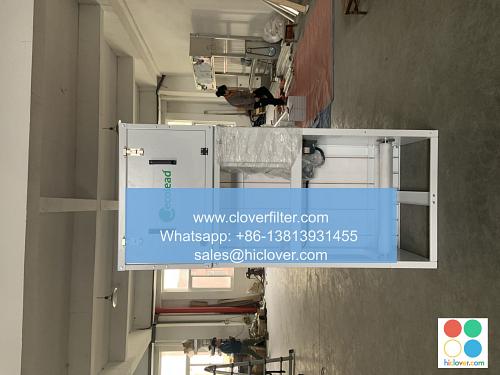How to Check If Your Air Filter Return Policy Is Fair and Reasonable

As a responsible consumer, it’s essential to scrutinize the return policy of your air filter purchase to ensure it aligns with your expectations and industry standards. A fair and reasonable return policy can provide peace of mind, while a restrictive or unclear policy can lead to frustration and financial losses. In this article, we’ll delve into the key aspects of evaluating your air filter return policy, focusing on consumer protection, fair business practices, and warranty and refund procedures.
Evaluating the Return Policy: Key Considerations
To determine if your air filter return policy is fair and reasonable, consider the following factors:
* Timeframe for returns: Check if the policy allows for a reasonable timeframe to return the product, typically 30 days or more.
* Return shipping costs: Find out if the seller covers return shipping costs or if you’re responsible for them.
* Restocking fees: Be aware of any restocking fees that may be deducted from your refund.
* Condition of returned items: Understand what condition the returned item must be in to qualify for a refund or exchange.
* Warranty and guarantee: Check if the product comes with a warranty or guarantee that covers defects or performance issues.
Application Areas: Where to Apply Your Knowledge
Your understanding of air filter return policies can be applied to various scenarios, including:
* Online purchases: When buying air filters online, it’s crucial to review the return policy before making a purchase.
* In-store purchases: Even when buying in-store, it’s essential to ask about the return policy and ensure you understand the terms.
* Warranty claims: If your air filter is defective or not performing as expected, knowing the return policy can help you navigate the warranty claim process.
* Comparing products: When comparing different air filters, consider the return policy as a factor in your decision-making process.
Red Flags: Identifying Unfair or Unreasonable Return Policies
Be cautious of return policies that exhibit the following characteristics:
* Unduly restrictive timeframes: Return policies with extremely short timeframes, such as 5 days, may be unfair.
* Excessive restocking fees: Fees that exceed 20-30% of the purchase price may be unreasonable.
* Unclear or confusing language: Policies with ambiguous or confusing language can make it difficult to understand your rights as a consumer.
* Lack of warranty or guarantee: Be wary of products without a warranty or guarantee, as this may indicate a lack of confidence in the product’s quality.
Conclusion: Empowering Consumers with Knowledge
In conclusion, being informed about your air filter return policy is vital to ensuring a fair and reasonable purchasing experience. By understanding the key considerations, application areas, and red flags, you can make informed decisions and avoid potential pitfalls. Remember to always review the return policy carefully, ask questions if unsure, and prioritize consumer protection and fair business practices. With this knowledge, you’ll be empowered to navigate the market with confidence and make the most of your air filter purchase. Prompt

